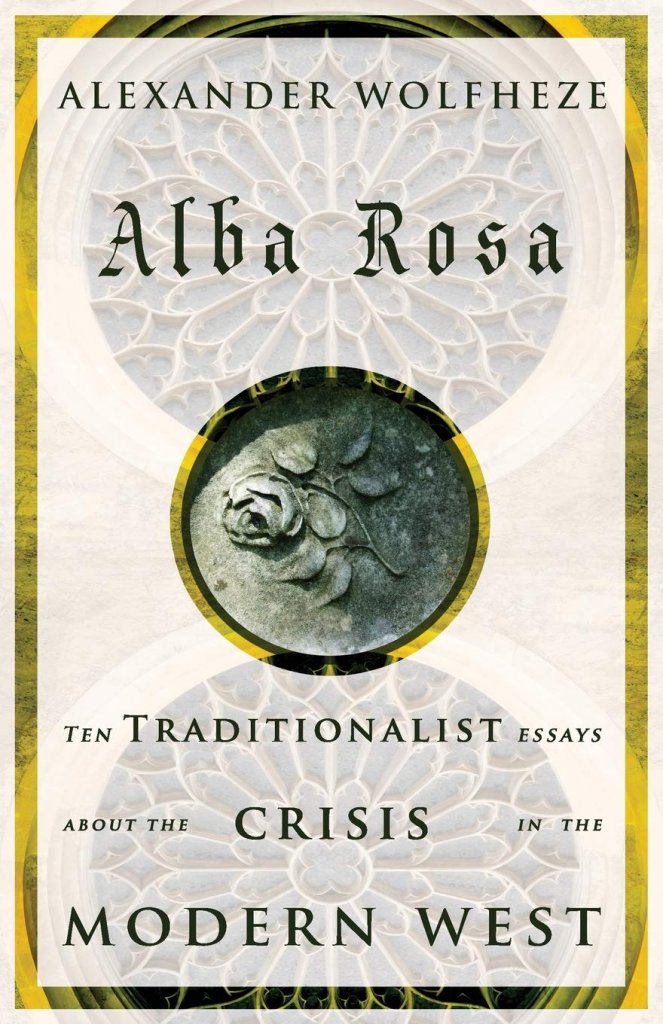In Alexander Wolfheze’s Alba Rosa: Ten Traditionalist Essays, the grim reality of cultural nihilism is laid bare. This phenomenon, a byproduct of modernity’s detachment from tradition and rooted values, has seeped into the foundations of Western societies, eroding their cultural and spiritual integrity. As the author argues, cultural nihilism is not merely an intellectual or aesthetic concern; it is an existential threat that risks plunging entire civilizations into chaos.
Understanding Cultural Nihilism
Cultural nihilism emerges from the deliberate rejection of rootedness—traditions, heritage, and spiritual values that once provided societies with meaning. In its place, a sterile ideology of progress, materialism, and “global citizenship” has taken hold. This erosion of meaning has societal and psychological consequences, creating a populace adrift in consumerism, individualism, and hyper-secularism.
Wolfheze draws attention to the chilling examples of Charles Manson’s “Helter Skelter,” a microcosmic representation of cultural nihilism’s chaotic undercurrents. Manson’s twisted interpretation of a race war revealed how the void left by the absence of traditional morality could be filled by destructive fantasies. The connection between such acts and the broader cultural disintegration lies in the shared rejection of moral and social structures, which allows chaos to become a governing force.
Hannelore Kohl: A Tragic Symbol of a Broken Nation
The story of Hannelore Kohl, the wife of former German Chancellor Helmut Kohl, symbolizes the devastation wrought by this cultural and historical nihilism. As Wolfheze recounts, her life was marked by profound suffering: raped as a young girl during the Soviet invasion and haunted by lifelong trauma. Her silent endurance and eventual tragic end underscore the moral and psychological scars inflicted on post-war Germany.
Kohl’s life reflects a larger national trauma—Germany’s forced transformation into what Wolfheze terms “Anti-Germany.” This project, spearheaded by leaders like Angela Merkel, actively undermines Germany’s identity by promoting mass immigration, cultural self-negation, and a rejection of historical continuity. Merkel’s “Anti-Germany” policies symbolize a broader European trend toward self-destruction, perpetuated under the guise of humanitarianism and modernity.
Angela Merkel’s ‘Anti-Germany’: A Symptom of Decline
Wolfheze critiques Merkel’s policies as emblematic of cultural nihilism’s grip on European leadership. Under Merkel’s tenure, the German state has, in his view, willingly dissolved its historical identity and moral sovereignty to align with globalist agendas. This has left Germany vulnerable to demographic decline, cultural alienation, and socio-political instability.
The influx of mass immigration, celebrated by Merkel’s infamous wir schaffen das (“we can do it”), has led to what Wolfheze and others perceive as an intentional dismantling of European cultural coherence. This engineered “ethnic replacement” serves the interests of a globalist elite while alienating native populations from their cultural roots. As Wolfheze notes, this isn’t just Germany’s problem—it is a harbinger of what awaits the rest of Europe.
The Western Dilemma: Are We All Doomed?
The West’s trajectory under the influence of cultural nihilism raises an uncomfortable question: Are we doomed? Wolfheze acknowledges the gravity of this crisis but resists complete despair. The roots of Western civilization—its traditions, faiths, and shared histories—remain intact beneath the rubble of modernity. These roots provide the basis for a potential revival, albeit one that requires courage, introspection, and resistance against the cultural nihilist status quo.
A Vision for the Future: Revival or Ruin?
The prognosis is stark but not entirely hopeless. Wolfheze envisions a “Golden Dawn” for the West, a synthesis of traditional values and modern realities. This would require abandoning the ideological chains of cultural nihilism and globalist conformity. Instead, societies must cultivate a renewed sense of purpose rooted in their historical and spiritual identities.
For Europe, this could mean embracing Neo-Eurasianism, a geopolitical and cultural framework that values local traditions while opposing the homogenizing forces of globalism. For the West as a whole, the path to recovery lies in reconnecting with the principles of truth, beauty, and justice that once defined its civilizations.
The Path Ahead
Alba Rosa provides a compelling critique of cultural nihilism while offering a roadmap for resistance and renewal. The stories of figures like Hannelore Kohl remind us of the profound cost of abandoning cultural and moral frameworks. The dangers highlighted in Merkel’s policies illustrate the urgency of addressing these issues before they become irreversible.
Ultimately, whether the West succumbs to its existential crisis or rises above it depends on its ability to reject the siren song of nihilism and rediscover the values that made its cultures resilient and flourishing. Wolfheze’s essays challenge us to confront these truths and choose a future worth striving for.





